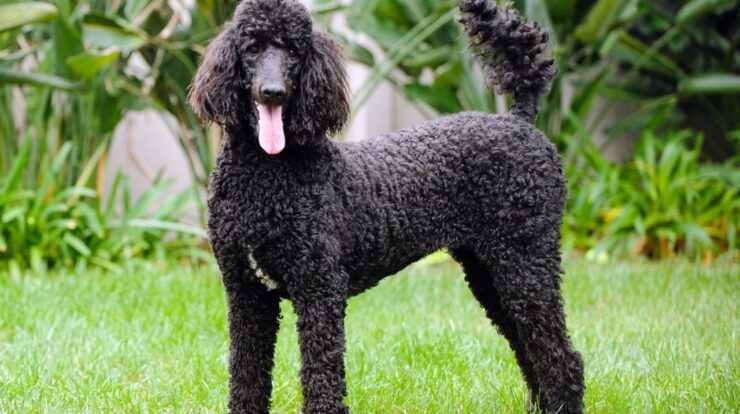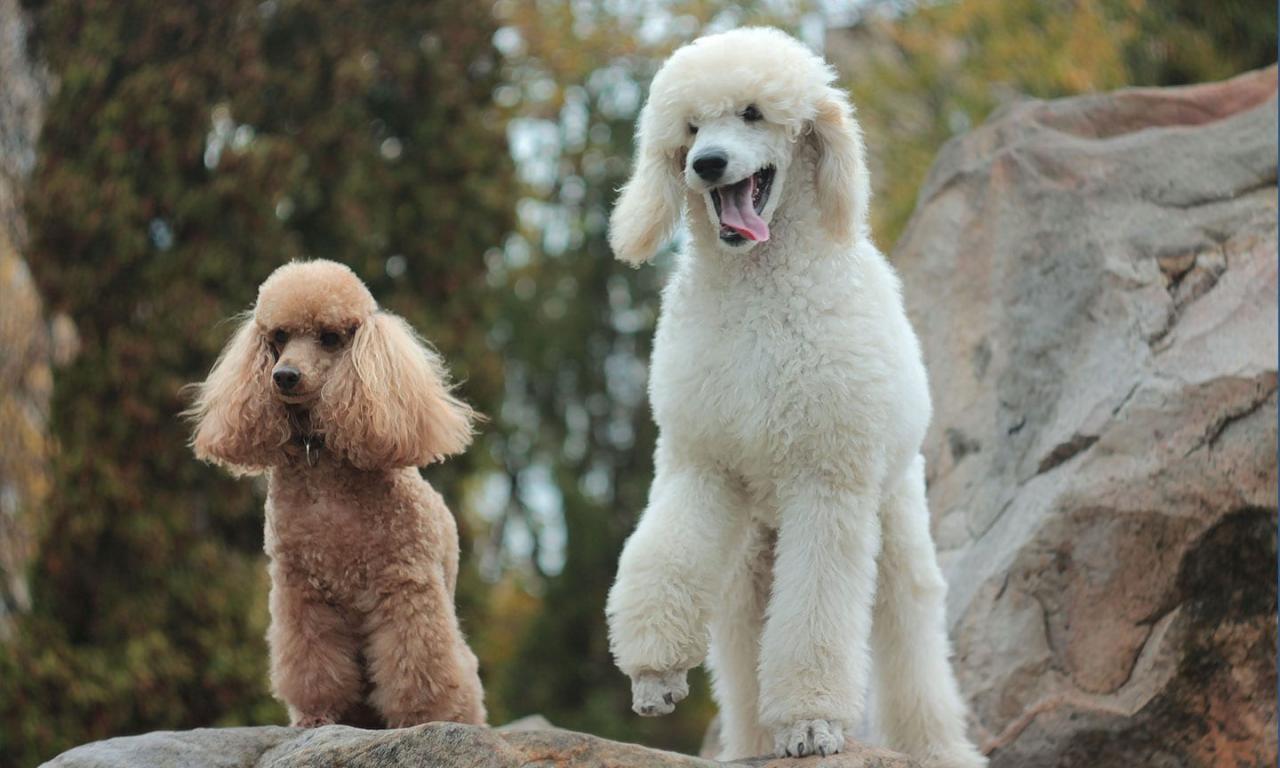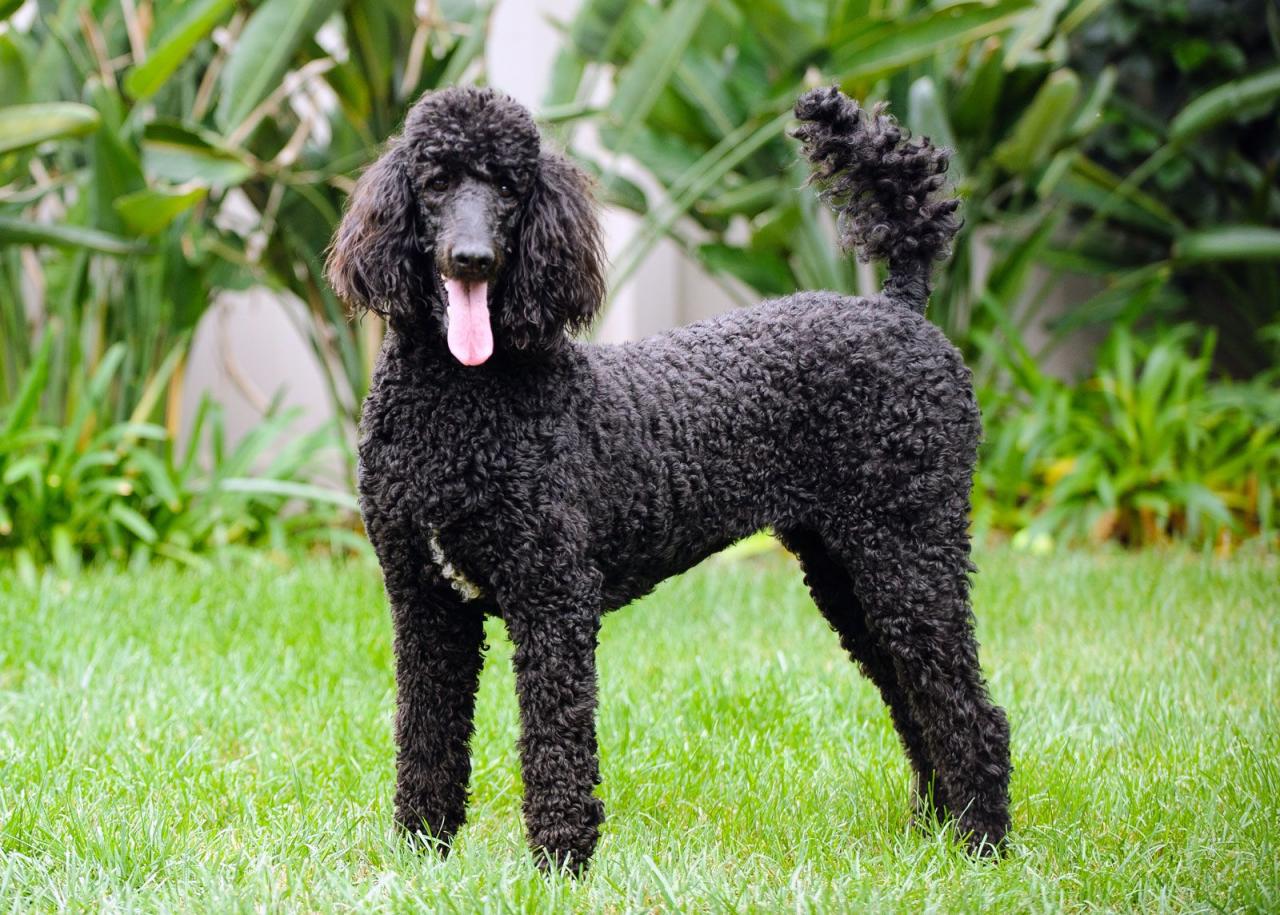
Poodle meaning delves into the fascinating world of these beloved canines, exploring their rich history, endearing temperament, and essential care requirements. From their origins as water retrievers to their captivating presence in popular culture, poodles have left an indelible mark on human society.
With their distinctive appearance and remarkable intelligence, poodles have captured the hearts of dog enthusiasts worldwide. This comprehensive guide unravels the intricacies of the poodle breed, providing valuable insights into their unique characteristics, care needs, and the joy they bring to their owners.
Poodle History: Poodle Meaning
The poodle, an iconic breed known for its elegance and intelligence, has a rich and fascinating history. Its origins can be traced back to the 15th century in France, where it was originally used as a water retriever for hunting waterfowl.
Over the centuries, the poodle evolved into three distinct size varieties: the Standard, the Miniature, and the Toy.
Poodle Types
- Standard Poodle:The largest of the three varieties, standing over 15 inches tall at the shoulder. Known for its athleticism, intelligence, and trainability.
- Miniature Poodle:A medium-sized variety, ranging from 10 to 15 inches in height. Known for its playful and affectionate nature, making it a popular companion dog.
- Toy Poodle:The smallest variety, standing at just 10 inches or under. Known for its charming personality and adaptability to various living environments.
Poodle Temperament and Behavior

Poodles are renowned for their exceptional intelligence, loyalty, and trainability. They are eager to please their owners and respond well to positive reinforcement. Their playful and affectionate nature makes them ideal companions for families with children and other pets.
Personality Traits
- Intelligent:Poodles are highly intelligent dogs, ranking among the top 10 most intelligent breeds. They are quick learners and excel in obedience training.
- Loyal:Poodles are deeply devoted to their families and form strong bonds with their owners. They are known for their protective instincts and will often bark to alert their owners to strangers.
- Trainable:Poodles are highly trainable and eager to learn new commands. Their intelligence and desire to please make them ideal for various activities, such as agility, obedience, and retrieving.
Poodle Care and Grooming
Poodles require regular care and grooming to maintain their health and appearance. Their distinctive curly coat needs to be brushed daily to prevent matting and tangles. Regular bathing and trimming are also essential.
Grooming Requirements
- Brushing:Daily brushing is crucial to remove loose hair, prevent mats, and keep the coat healthy. Use a slicker brush or comb designed for curly coats.
- Bathing:Poodles should be bathed every 1-2 weeks using a gentle shampoo and conditioner. Avoid over-bathing, as it can strip the coat of its natural oils.
- Trimming:Regular trimming is necessary to maintain the poodle’s characteristic shape. Professional grooming is recommended every 4-6 weeks.
Poodle Health and Common Issues
Poodles are generally healthy dogs, but like all breeds, they are prone to certain health conditions. Some common issues include:
Health Concerns, Poodle meaning
- Hip Dysplasia:A condition where the hip joint does not develop properly, leading to pain and lameness.
- Von Willebrand Disease:A bleeding disorder caused by a deficiency in a clotting factor.
- Cushing’s Syndrome:A hormonal disorder that leads to increased cortisol production.
Poodle Training and Activities
Poodles excel in training and enjoy various activities that stimulate their minds and bodies. Positive reinforcement is the most effective training method for poodles.
Training Methods
- Positive Reinforcement:Rewarding desired behaviors with treats, praise, or play.
- Consistency:Maintaining consistent training routines and commands.
- Patience:Training poodles requires patience and repetition.
Final Wrap-Up

In conclusion, the poodle meaning encompasses not only the history and characteristics of this remarkable breed but also the profound bond they share with humans. Their unwavering loyalty, playful nature, and adaptability make them exceptional companions. Whether as working dogs, show dogs, or cherished family members, poodles continue to enchant us with their intelligence, beauty, and unwavering devotion.
Clarifying Questions
What is the origin of the poodle?
Poodles originated in Germany as water retrievers, prized for their ability to retrieve waterfowl from rivers and lakes.
What are the different types of poodles?
Poodles come in three size varieties: Standard, Miniature, and Toy, each with its own distinctive characteristics.
Are poodles hypoallergenic?
Yes, poodles are considered hypoallergenic due to their non-shedding, curly coats.
How much exercise do poodles need?
Poodles are active dogs that require regular exercise, including daily walks, playtime, and mental stimulation.
Are poodles easy to train?
Yes, poodles are highly intelligent and eager to please, making them responsive to training with positive reinforcement.





